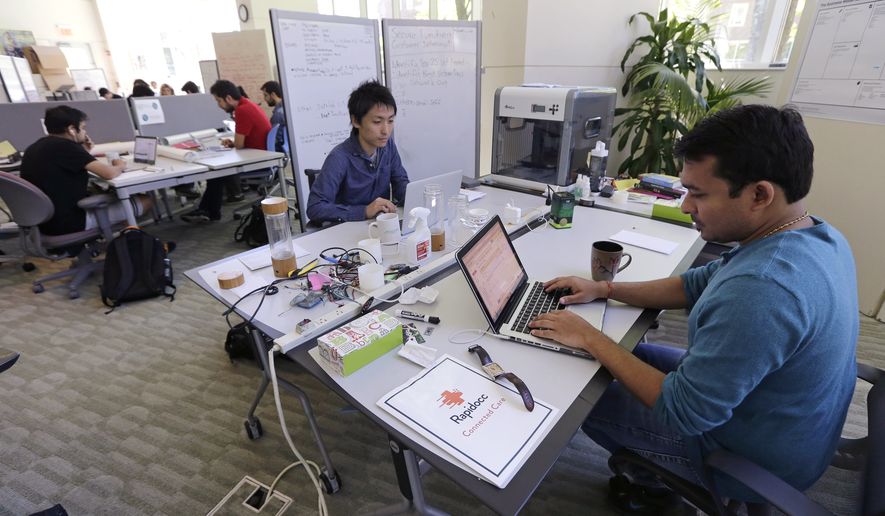One of the largest users of America’s high-skilled guest-worker program admitted in court documents that it paid the foreigners less than it paid U.S. citizens for the same kind of work, shorting them nearly $100 million in wages each year, according to a new study Thursday.
HCL Technologies, based in India, wields the H-1B skilled-worker visa as a way to undercut competition and find the cheapest workers, according to the study by the Economic Policy Institute.
HCL then outsources the foreign workers to big U.S. firms like Disney, Microsoft, Google and the University of California.
Last year HCL was awarded more than 4,000 H-1B visas, ranking it the eighth-biggest user of the program.
EPI analyzed internal company documents that were produced as part of an ongoing court case and said HCL’s own data showed it was underpaying the guest workers.
One chart showed HCL’s H-1B workers hired in India who did work using Java, a computer programming language, were paid an average of $72,160. U.S. citizens employed by HCL who worked with Java averaged $81,619. Visa holders who worked with Oracle, another computer system, averaged $85,459, while American citizens averaged $140,240.
“As these data show, HCL Technologies Inc. is in violation of the law requiring that H-1B employers pay H-1B visa holders at least as much as employees in the same jobs who are U.S. citizens or permanent residents,” EPI concluded.
Across its workforce, that meant $95 million in lower wages paid to the H-1B workers, EPI calculated.
HCL, in a brief statement, brushed aside the findings.
“HCL Technologies is strictly compliant with all relevant rules and regulations and is committed to pay wages to all employees in accordance with applicable laws,” the company said.
The H-1B visa program is one of the most popular ones run by Homeland Security, with 600,000 visa holders. Computer systems operators are particularly sought after as H-1B workers.
Some of the program’s abuses are legendary.
Disney hired H-1B workers to take jobs being held by Americans, and forced the Americans to train their guest-worker replacements.
The foreign workers were supplied by HCL.
EPI said there’s a flaw in the way the program operates with respect to companies like HCL, which act as visa mills, scooping up visa workers then farming them out to work for other companies.
The Labor Department treats the contract workers differently than direct hires when it comes to enforcing wage rules, EPI said.
“Thanks to its failure to enforce the wage laws or close the outsourcing loophole, DOL is in effect subsidizing the offshoring of high-paying U.S. jobs in information technology that once served as a pathway to the middle class, including for workers of color,” the EPI report concluded.
EPI said the outsourcing model is used by most of the top 10 H-1B employers, and pay similar low wages to their temporary workers.
H-1B visas create strange political coalitions.
Sens. Charles E. Grassley, Iowa Republican, and Richard J. Durbin, Illinois Democrat, have teamed up to push for better protections for American workers from unfair H-1B competition.
Meanwhile immigration lawyers and major business lobbies find common ground in trying to preserve the flow of foreign workers,
Then-candidate Donald Trump actually found himself on both sides of the issue in the 2016 campaign when he said during a debate he wanted to bring in more of the high-skilled workers, contradicting his campaign position calling for stricter controls.
Mr. Trump’s wife, Melania, first entered the U.S. on an H-1B visa as a fashion model in the 1990s.
Amid the coronavirus pandemic, Mr. Trump sought to suspend new H-1B visas, arguing jobs should go to Americans struggling with the economic collapse the virus sparked last year.
That was halted in the courts.
The Trump administration also issued new rules last year seeking to boost the rate of pay for H-1B visa holders to make Americans more competitive, and to change the way visas are doled out so higher-paying jobs get priority.
Those moves also were stopped by courts.
• Stephen Dinan can be reached at sdinan@washingtontimes.com.




Please read our comment policy before commenting.